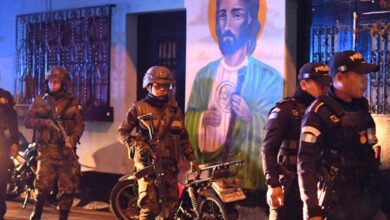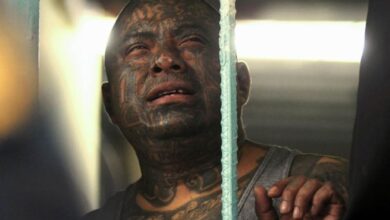Why Is Guatemala Going On Strike?
The Central American country takes to the streets calling for the resignation of President Alejandro Giammattei and the Attorney General .

Guatemalans begin with blockades this Thursday the National Strike that seeks the resignation of the Government and of the Attorney General Consuelo Porras. Photos: YT-regionmasgt, IG-DrGiammattei
LatiAmerican Post | Ariel Cipolla
Listen to this article
Leer en español: ¿Por qué Guatemala entró en Paro Nacional?
Guatemalans begin with blockades this Thursday the National Strike that seeks the resignation of the Government and of the Attorney General Consuelo Porras. Indigenous leaders, students, and union movements blocked different areas of Guatemala City. The convening movements have also been joined by other social groups, such as doctors, according to Prensa Libre .
Why the discontent?
The measure of the National Strike comes after Guatemalan President Alejandro Giammattei dismissed the anti-corruption prosecutor, Juan Francisco Sandoval, from his post. According to the protesters, this measure by Giammattei is one more example of irregularities that have been taking place in his government. This, added to an economy in crisis that has worsened since the beginning of the pandemic and with more than half of its 16 million inhabitants living in poverty.
GUATEMALA | PARO NACIONAL 29J
Manifestantes reunidos en Calle Martí, zona 2 de la capital.#RegiónMásNoticias pic.twitter.com/JhUZEtFtkf
— Región Más Noticias (@regionmasgt) July 29, 2021
Sandoval's dismissal was carried out by the Attorney General of the Nation, Consuelo Porras, who argued that the former anti-corruption prosecutor exercised a "selective and ideological" justice. For his part, the former official accused after his departure that Porras obstructed his work to investigate high-ranking officials of the Giammattei government, congress and courts.
The international response was immediate , both the United States and the United Nations expressed their concern over the removal of Sandoval. Washington even informed the Central American country that it will stop cooperation programs with the Guatemalan Public Ministry.
Also read: Is Bukele the key to greater Central American integration?
Guatemala and its eternal problem of corruption
The Central American country is perhaps the most obvious example of how rampant and blatant corruption cannot be controlled. So much so, that from 2006 to 2019, the United Nations sent an International Commission Against Impunity in Guatemala (CICIG, by its spanish initials). However, this commission was unilaterally terminated when then-Guatemalan President Jimmy Morales, alluding to the CICIG's participation in illegal acts and abuse of power.
Al pueblo de Guatemala informo: pic.twitter.com/OvHPz30Vde
— Alejandro Giammattei (@DrGiammattei) July 29, 2021
This act was condemned by the international community, at the head of the UN, and national bodies, which ended in a political crisis, affecting the last years of the Morales government.
These mobilizations amid the COVID-19 pandemic are not unusual in the region. Recently Cuba, Colombia, Chile, the United States, among other countries, have taken to the streets in search of changes. The Giammattei government has for now preferred to remain silent in relation to the protests that began on Thursday, July 29.




